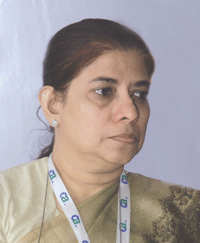 Among the many limitations and bottlenecks which India faces is the attitudinal factor, where there is a built in resistance to use technology
Among the many limitations and bottlenecks which India faces is the attitudinal factor, where there is a built in resistance to use technology
Shakila Shamsu, Joint Advisor (Education), Planning Commission
What objectives have been laid down in the 11th FiveYear Plan for catering to quality education in India?
The 11th Plan is an investment plan for Education and Health sectors. The education sector covering elementary, secondary, higher and technical education will greatly benefit from the thrust given in the current Plan period. The problems affecting quality of education – such as inadequate infrastructure, poor quality of faculty, outmoded teaching methods, outdated curriculum, lack of linkages between knowledge and skills – have been taken cognizance and appropriate corrective steps have been suggested. The Plan includes a coherent ICT based education both at the secondary and higher education.
All these can be achieved only if the States adopt a pro-active role in facilitating these reforms. States will have to protect the interests of the marginalised sections of the society through appropriate strategies as educational loans, scholarships, hostel facilities and other material assistance.
What role do you foresee for ICT in education? According to you, what are the reasons for India still lagging behind in ICT integration?
The buzzword today is ICT in education. But we need to assess the needs, usage and benefits of ICT in achieving educational objectives in a more realistic manner. Given my experience in Distance Education and Open Learning, ICT can produce optimal results only if both the receiver and sender are trained for its proper usage and attuned towards a common goal.
Among the many limitations and bottlenecks which India faces is the attitudinal factor, where there is a built in resistance to use technology. There is also a bias that greater use of technology will increase the existing digital divide. Another danger is of top down approach which results in adopting technologies unsuitable for our national or regional needs. Appropriateness of technology is crucial to the success of ICT applications.
In your opinion, how can we create an enabling environment for effective and efficient use of technologies in schools?
There is a general acceptance of the need to create technology enabled schooling environment. IT enabled learning would perhaps provide new directions in pedagogy and affect students achievement level. Technology seems to be the answer to several problems in educational settings, provided basic infrastructure such as computers and computer labs, multimedia labs, internet connectivity, power backup, etc, are ensured. In addition, human capital in the form of trained teachers competent to use ICT is also required.
What role does public private partnership play in enhancing technology usage in school education?
I strongly believe that there is great need to nurture public private partnerships for implementing ICT in school education. Majority of schools in our country are not equipped to effectively integrate ICTs in their activities. Private enterprise can do a great deal not only by supplying hardware and maintenance, but also help in developing content for teaching various subjects, especially in regional languages. Another area where private sector initiatives can contribute is teacher training by developing proper training modules.
Lastly, what would be your message for stakeholders in the education sector regarding an ICT policy on education in India?
Each one of us directly or indirectly is a stake holder in the education sector. Students, teachers, parents, educational administrators, heads of educational institutions, technology providers, all have a stake in education. The greatest stumbling block in the way of implementing an ICT policy in education is the attitudinal bias which is technology resistant. We need to correct our perspectives and ensure a blended and balanced use of technology along with the human capital to extend the frontiers of education in a global setting.
Note: Views expressed by the author in the interview are her own and in no way represent the Planning Commission’s views.





















